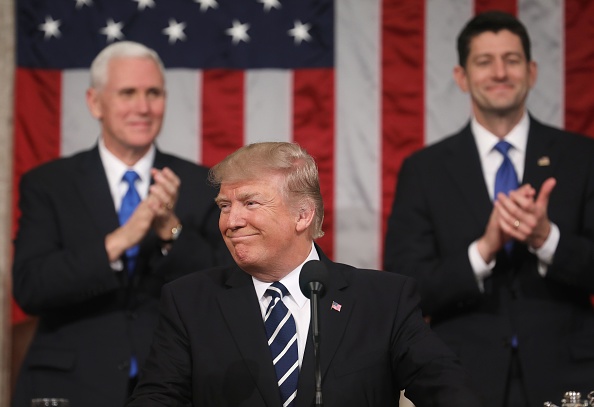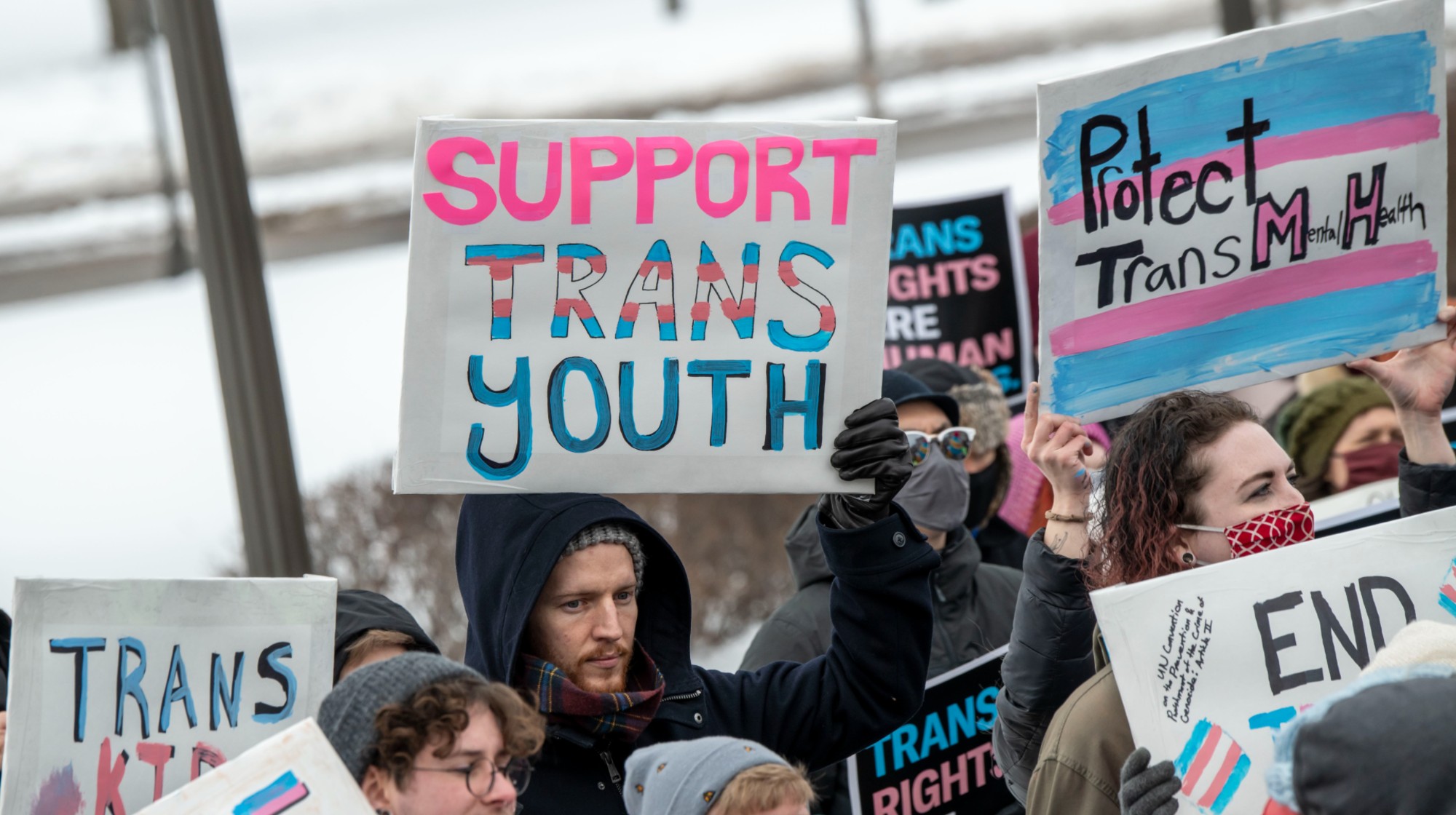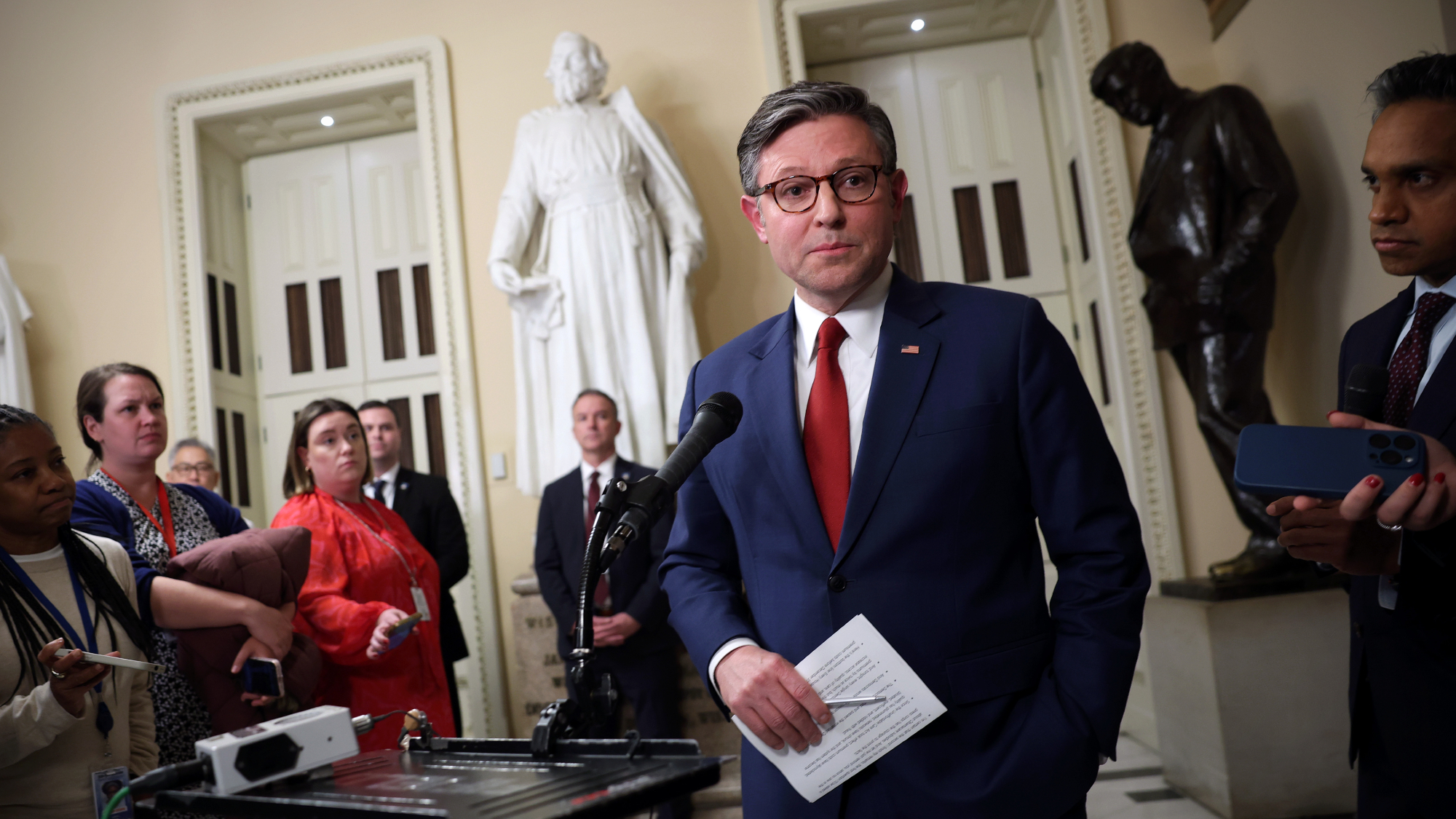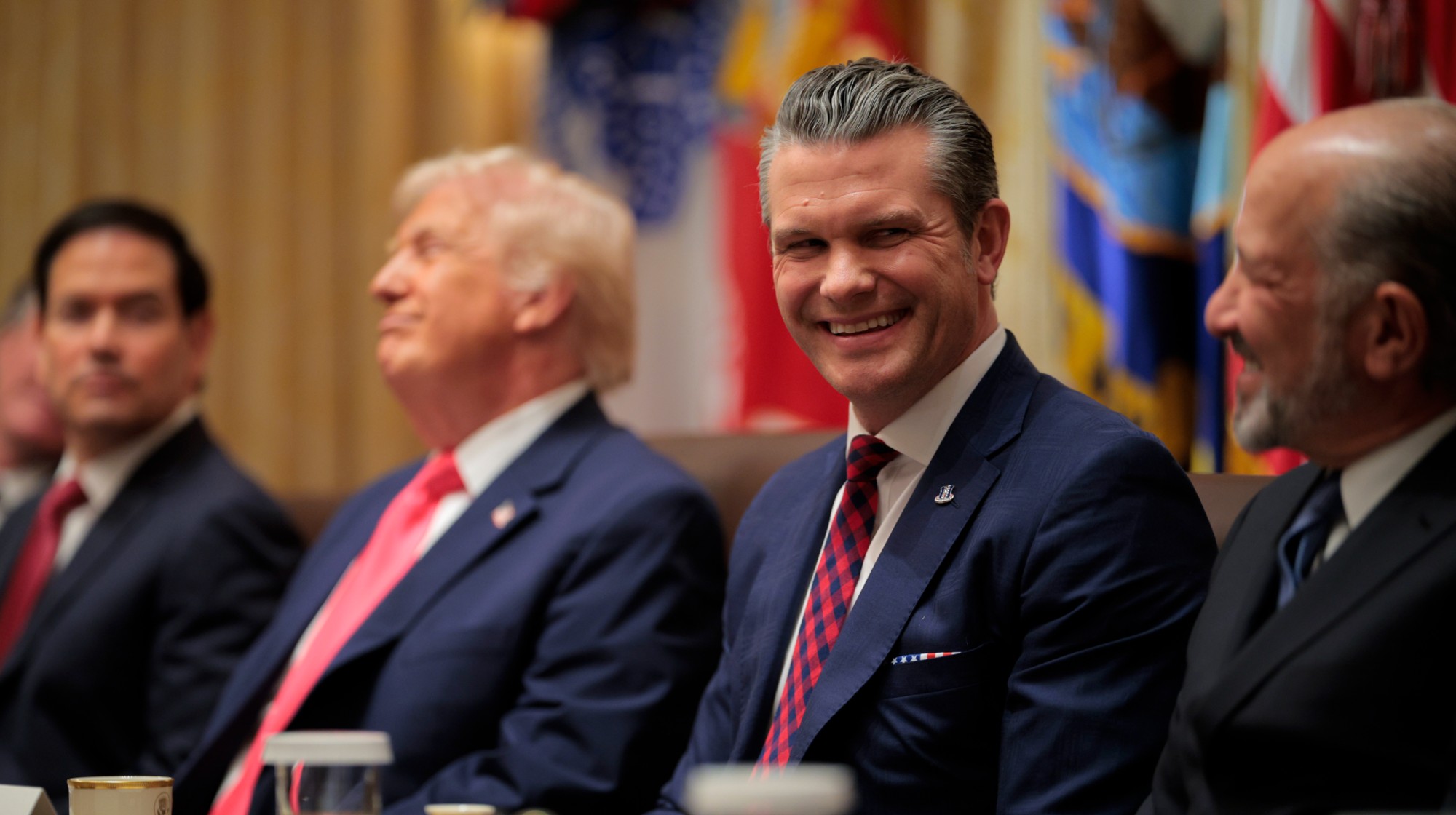Fact-checkers had a field day with President Trump's address to Congress


When presidents address joint sessions of Congress, they "generally are careful not to stretch the truth," say Glenn Kessler and Michelle Ye Hee Lee at The Washington Post. But despite the high-profile stage, "President Trump's maiden address to Congress was notable because it was filled with numerous inaccuracies," including several he "trots out on a regular, almost daily basis." There are a handful of "four Pinocchio" whoppers sprinkled in among the 13 notable claims Kessler and Lee fact-check, but generally the verdict — as at similar reality checks by CNN, The New York Times, PolitiFact, and USA Today — is "true but misleading."
A widely cited example is Trump's technically accurate but practically absurd claim that 94 million Americans are out of the labor force. Some 75 percent of those people (pretty much every American over 15 without a job) are students, stay-at-home parents, disabled people, and retirees who aren't looking for work; the Bureau of Labor Statistics puts the number of unemployed people at 7.6 million in January. Trump's claim that the U.S. has spent $6 trillion on wars in the Middle East is also wildly inflated, counting the $1.6 trillion to $3.8 trillion the U.S. has spent on the wars in Iraq and Afghanistan since 2001 plus future spending for three decades on veterans' care, interest on the debt, and other costs. This unspent money could not, obviously, have been used to rebuild America's infrastructure. There were other hard-to-verify statements like this:
Mostly, though, Trump exaggerated or cherry-picked data. He claimed credit for military cost cuts in the works long before he was elected, for instance, and U.S. jobs that companies decided to fill before the election — though, notes CNN's Julia Horowitz, "there are signs he urged along the process in cases." He suggested that the major driver of lost factory jobs was free-trade agreements rather than automation technology, and strongly oversold the problems facing the Affordable Care Act. Trump also falsely suggested America has an open border, exaggerated the crime risk and economic costs of immigration, and neglected to mention that overall violent crime is still near historical lows. If you want more information, you can read any of the embarrassment of fact-checks above.
The Week
Escape your echo chamber. Get the facts behind the news, plus analysis from multiple perspectives.

Sign up for The Week's Free Newsletters
From our morning news briefing to a weekly Good News Newsletter, get the best of The Week delivered directly to your inbox.
From our morning news briefing to a weekly Good News Newsletter, get the best of The Week delivered directly to your inbox.
A free daily email with the biggest news stories of the day – and the best features from TheWeek.com
Peter has worked as a news and culture writer and editor at The Week since the site's launch in 2008. He covers politics, world affairs, religion and cultural currents. His journalism career began as a copy editor at a financial newswire and has included editorial positions at The New York Times Magazine, Facts on File, and Oregon State University.
-
 7 bars with comforting cocktails and great hospitality
7 bars with comforting cocktails and great hospitalitythe week recommends Winter is a fine time for going out and drinking up
-
 7 recipes that meet you wherever you are during winter
7 recipes that meet you wherever you are during winterthe week recommends Low-key January and decadent holiday eating are all accounted for
-
 Nine best TV shows of the year
Nine best TV shows of the yearThe Week Recommends From Adolescence to Amandaland
-
 Bari Weiss’ ‘60 Minutes’ scandal is about more than one report
Bari Weiss’ ‘60 Minutes’ scandal is about more than one reportIN THE SPOTLIGHT By blocking an approved segment on a controversial prison holding US deportees in El Salvador, the editor-in-chief of CBS News has become the main story
-
 CBS pulls ‘60 Minutes’ report on Trump deportees
CBS pulls ‘60 Minutes’ report on Trump deporteesSpeed Read An investigation into the deportations of Venezuelan migrants to El Salvador’s notorious prison was scrapped
-
 Trump administration posts sliver of Epstein files
Trump administration posts sliver of Epstein filesSpeed Read Many of the Justice Department documents were heavily redacted, though new photos of both Donald Trump and Bill Clinton emerged
-
 Trump HHS moves to end care for trans youth
Trump HHS moves to end care for trans youthSpeed Read The administration is making sweeping proposals that would eliminate gender-affirming care for Americans under age 18
-
 Jack Smith tells House of ‘proof’ of Trump’s crimes
Jack Smith tells House of ‘proof’ of Trump’s crimesSpeed Read President Donald Trump ‘engaged in a criminal scheme to overturn the results of the 2020 presidential election,’ hoarded classified documents and ‘repeatedly tried to obstruct justice’
-
 House GOP revolt forces vote on ACA subsidies
House GOP revolt forces vote on ACA subsidiesSpeed Read The new health care bill would lower some costs but not extend expiring Affordable Care Act subsidies
-
 Hegseth rejects release of full boat strike footage
Hegseth rejects release of full boat strike footageSpeed Read There are calls to release video of the military killing two survivors of a Sept. 2 missile strike on an alleged drug trafficking boat
-
 Trump vows naval blockade of most Venezuelan oil
Trump vows naval blockade of most Venezuelan oilSpeed Read The announcement further escalates pressure on President Nicolás Maduro
